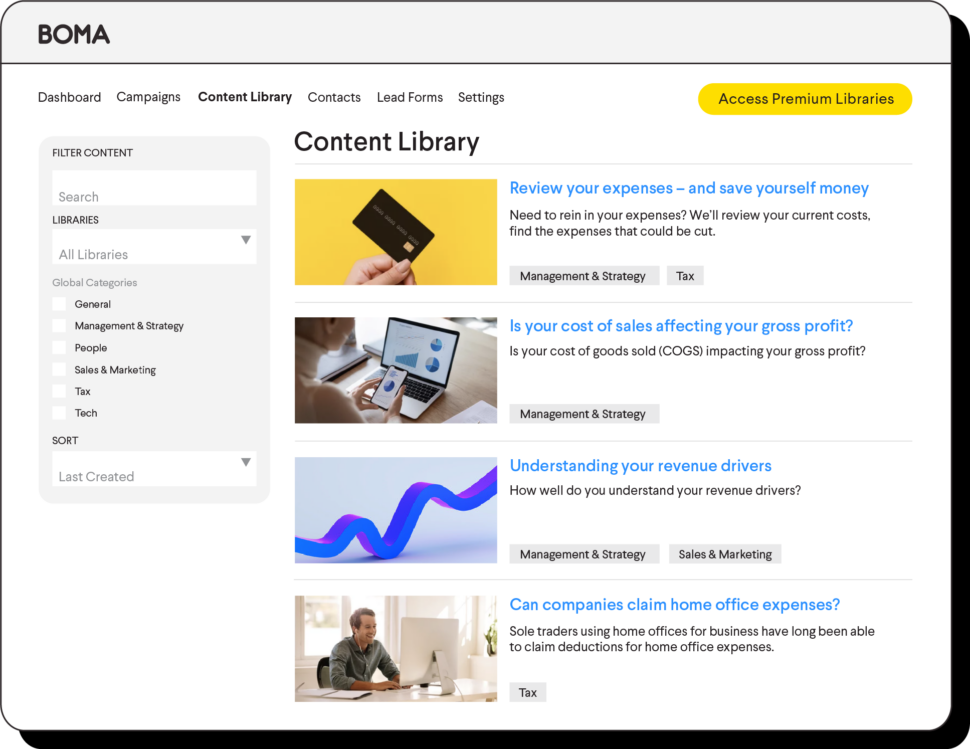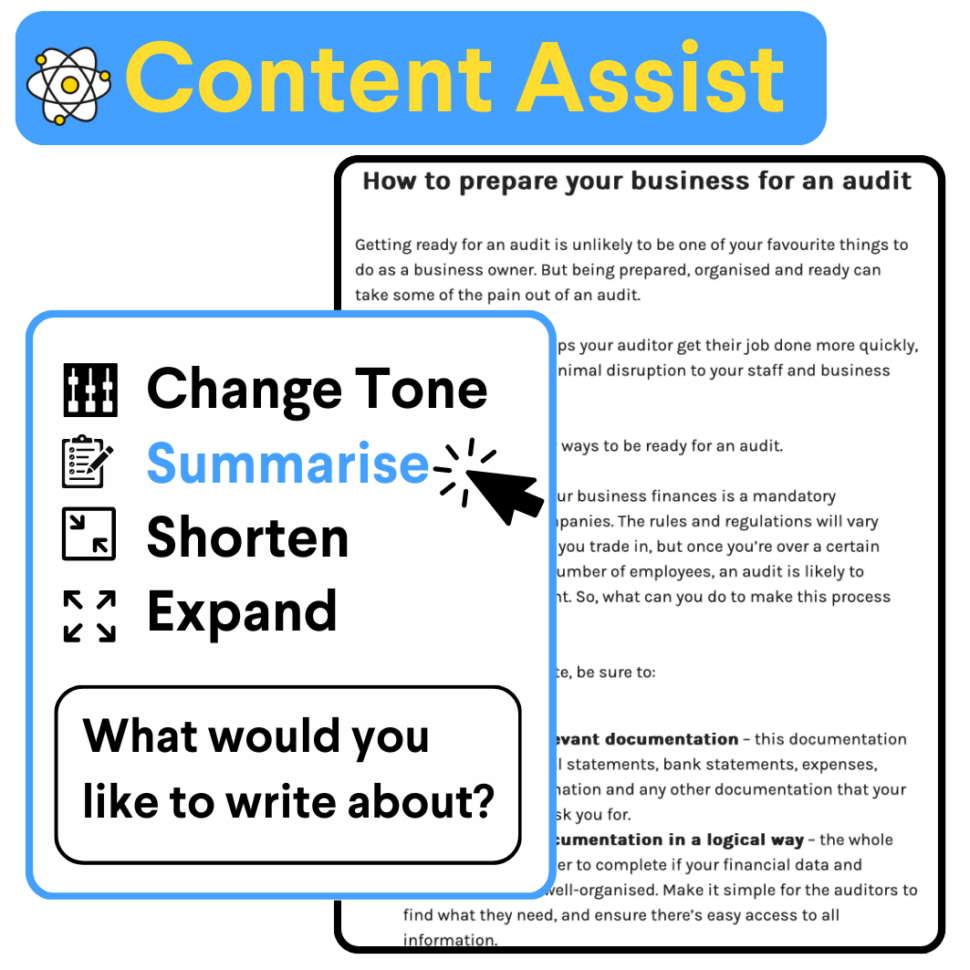
Everything Accountants Need To Help Market & Grow Their Firm
All-in-one marketing solution: specialist content, email, social media, and blogs

All-in-one marketing solution: specialist content, email, social media, and blogs
Seamlessly create, customise, and distribute engaging content across email, social media, and your website. Whether you need ready-to-use articles, AI-assisted writing, or managed marketing services, BOMA empowers you to connect with clients and grow your business effortlessly.
See how easy it is to send a multi-channel campaign in BOMA in this 3 minute interactive demo.
Note: Make sure to expand the demo window (top right) to view it correctly.

BOMA's extensive library is brimming with rich content, empowering you to deliver tangible benefits to your clients. From spotlighting pertinent business challenges to sharing actionable insights for growth, our curated collection equips you to provide unparalleled value and support to your clients'.

BOMA’s generative AI writing tool ‘Content Assist’ revolutionises your email campaigns, offering the flexibility to either create content from scratch or effortlessly customise and edit articles from our extensive content library.

Elevate your accounting practice with our comprehensive, hassle-free digital marketing solutions. We’ve crafted exclusive packages to enhance your firm’s online presence, ensuring you stay ahead in a competitive digital landscape without having to lift a finger. These are total done-for-you BOMA packages.

Your website serves as your digital storefront, crucial for showcasing your firm to potential clients. At BOMA, we specialise in crafting accounting websites engineered for conversion, effectively positioning your firm to communicate its value proposition and attract new business.

When you start with BOMA our onboarding team can help set up your account in under an hour.
We’ll then support you with 1-to-1 training on your path to becoming a BOMA expert and more confident marketer.
BOMA proudly partners with:
![]()
![]()
![]()
![]()